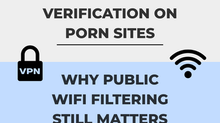Addressing the Rising Suicide Rates: Why Businesses Must Prioritise Employee Mental Health
- Sep 27, 2024
- 3 min read
Updated: Sep 30, 2024

In recent years, the conversation around mental health in the workplace has become increasingly urgent, and for good reason. The rising rates of suicide globally are alarming, with stress, anxiety, and depression affecting millions of people each year. The workplace, where many of us spend a significant portion of our lives, plays a crucial role in either mitigating or exacerbating these challenges. As these issues escalate, businesses must adopt a proactive approach to safeguard the mental health and well-being of their employees.
The Alarming Rise in Suicide Rates
Suicide rates have been steadily climbing, a tragic indicator of the mental health crisis that society faces today. According to recent statistics, suicide is now one of the leading causes of death worldwide, particularly among younger adults (1). This trend is not just a personal tragedy; it is a public health crisis that has far-reaching implications for communities, economies, and workplaces.
The reasons behind this rise are complex, involving a mix of social, economic, and individual factors. However, the workplace environment, where many individuals experience intense stress, pressure, and sometimes isolation, can either contribute to or help alleviate these pressures. Therefore, it is crucial for businesses to recognise the importance of mental health and take steps to protect their employees.
The Business Imperative: Protecting Mental Health
For businesses, the well-being of employees is not just a moral obligation but also a strategic one. Employees who struggle with mental health issues are more likely to experience burnout, reduced productivity, and absenteeism. In contrast, organisations that prioritise mental health often see benefits like increased employee engagement, lower turnover, and a more positive workplace culture.
But what does it mean to truly protect employee mental health? It goes beyond offering generic support or periodic wellness programs. It requires a holistic and proactive approach, one that recognises the signs of distress early and offers appropriate resources and support.
The Role of Technology in Supporting Mental Health
In today’s digital age, technology plays a pivotal role in supporting mental health. There are now a plethora of tools and resources available that can help businesses provide the right support to their employees. These tools can range from mental health apps to platforms that offer access to counselling services, mindfulness training, and even AI-driven solutions that can identify early signs of distress.
One such innovative solution is R;pple -a digital crisis intervention tool specifically designed to intervene at critical moments when individuals may be seeking harmful content online. R;pple signposts to real-time mental health support and resources, helping to prevent potential suicides by offering a lifeline at the most crucial moments.

Our Commitment to Mental Health: Partnering with R;pple
Understanding the gravity of the situation and the need for effective solutions, we have partnered with R;pple to provide our clients with access to innovative tools that support mental health. This partnership allows us to offer resources that are not only proactive but also sensitive to the needs of individuals who may be struggling in silence.
The R;pple tool is designed to be intuitive and accessible, ensuring that employees can get the help they need when they need it most. By integrating R;pple into the workplace, businesses can create a safety net for their employees, ensuring that no one has to face their struggles alone.
Taking Action: A Call to Businesses
As the issue of suicide continues to rise, it is imperative that businesses step up and take responsibility for the mental health of their employees. This means not just responding to crises when they occur, but actively working to prevent them through the use of technology, comprehensive support systems, and a workplace culture that prioritises well-being.
By partnering with organisations like R;pple and embracing the resources available, businesses can play a critical role in reversing the trend of rising suicide rates and creating a healthier, more supportive environment for all employees.
Let’s make mental health a priority, not just a talking point.
For more information about R;pple and how it can support your organisation, or to make an enquiry, click here
(1) More than 700,000 people worldwide take their own life each year; suicide is the fourth leading cause of death among 15–29-year-olds. (WHO, 2019)









































Comments